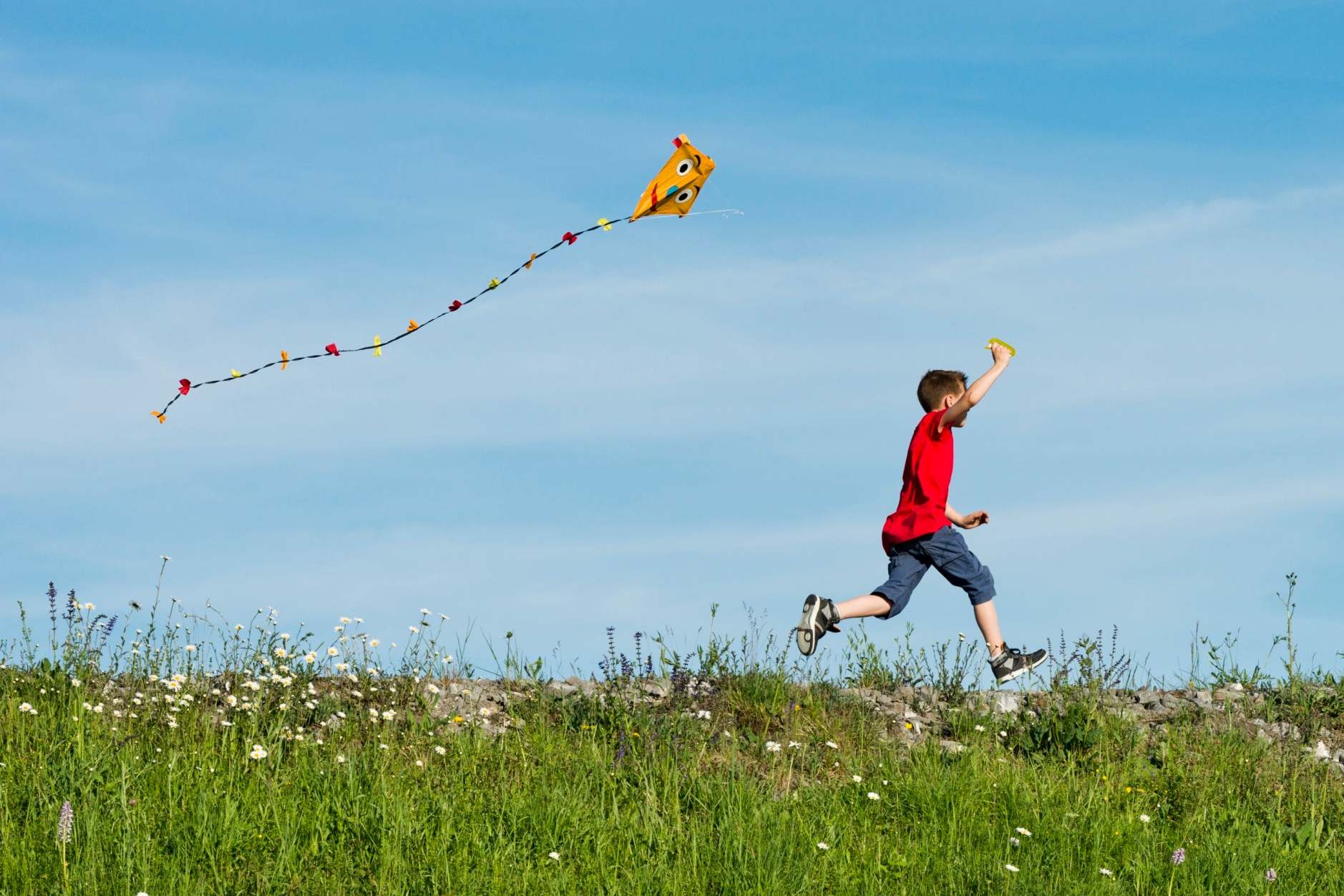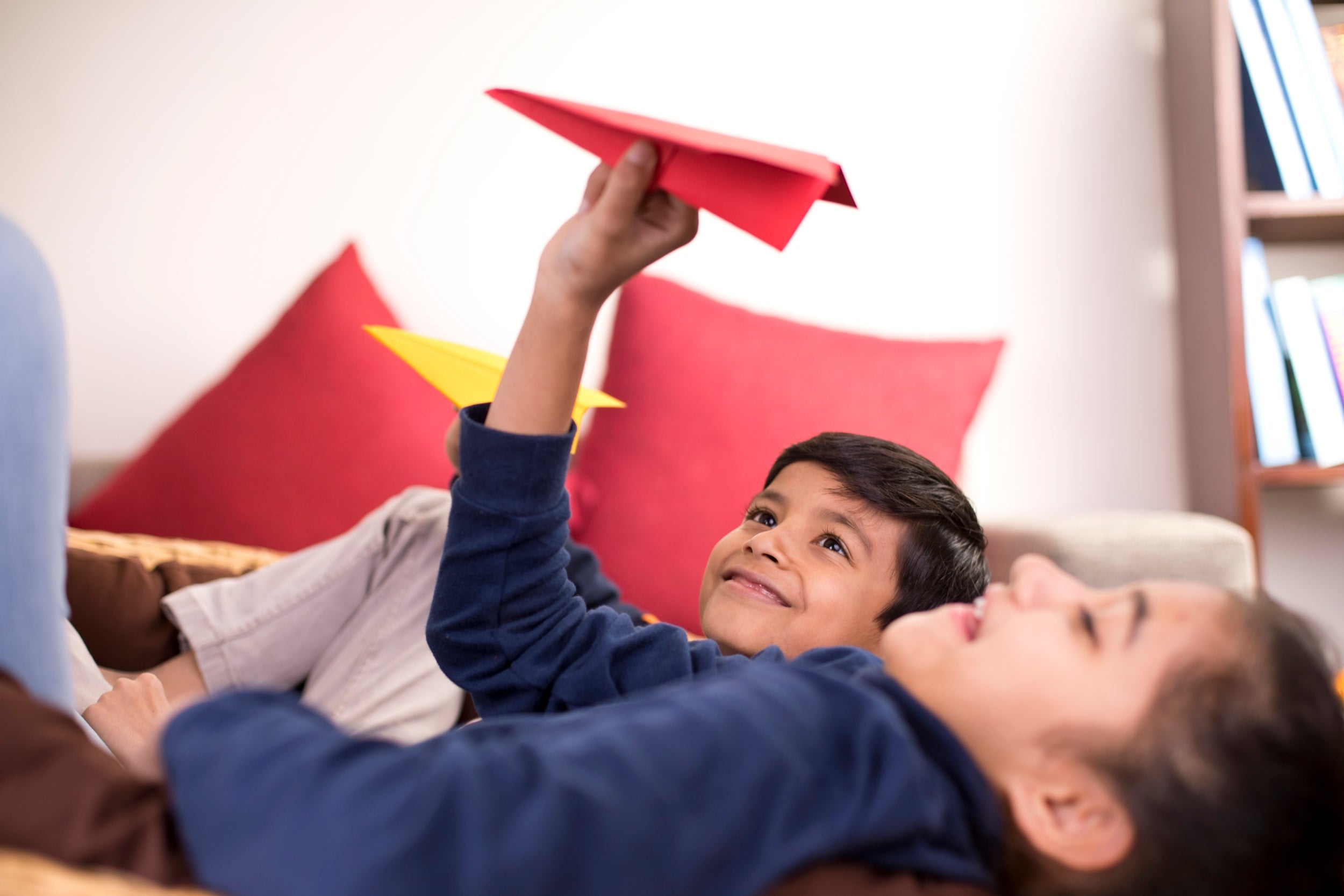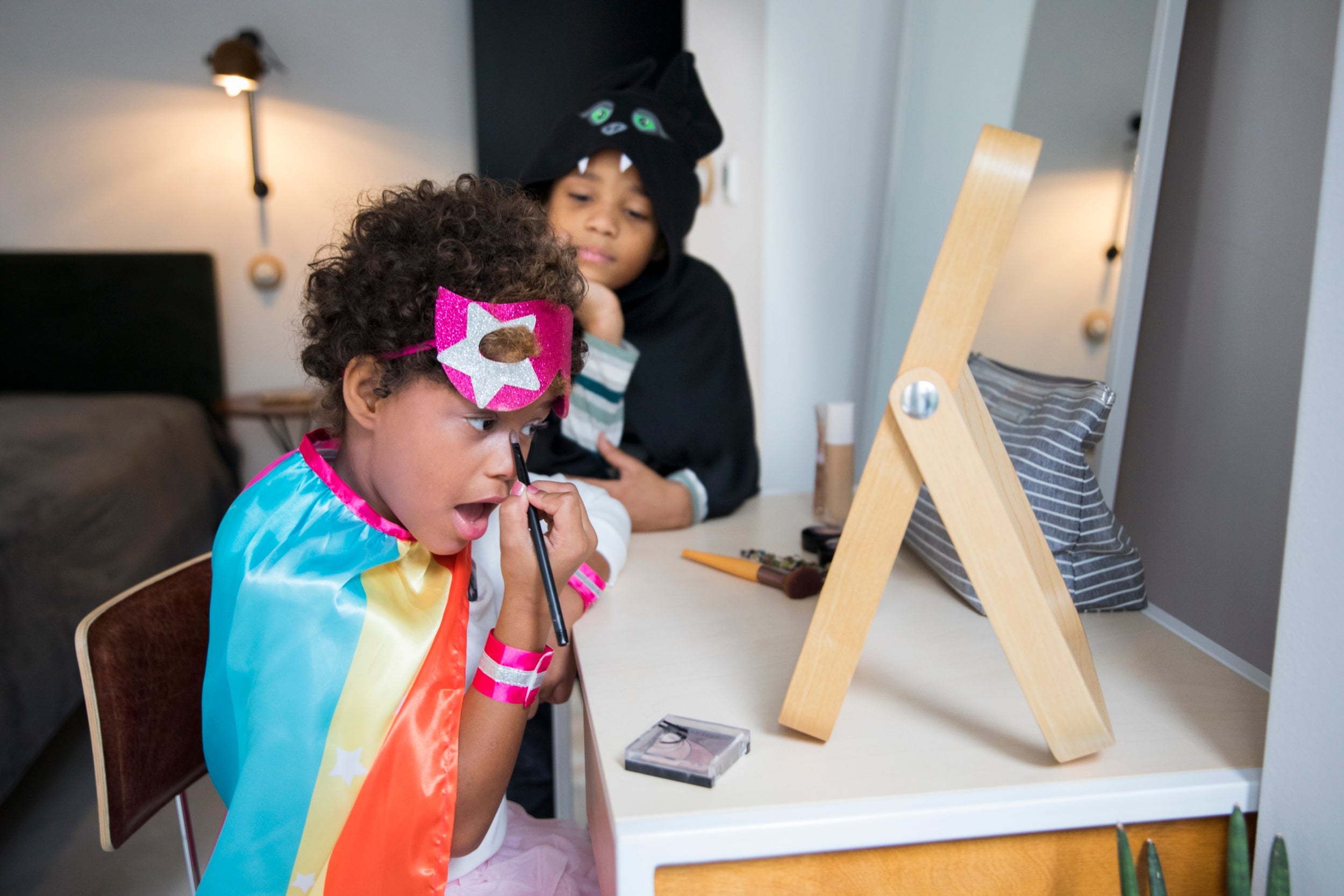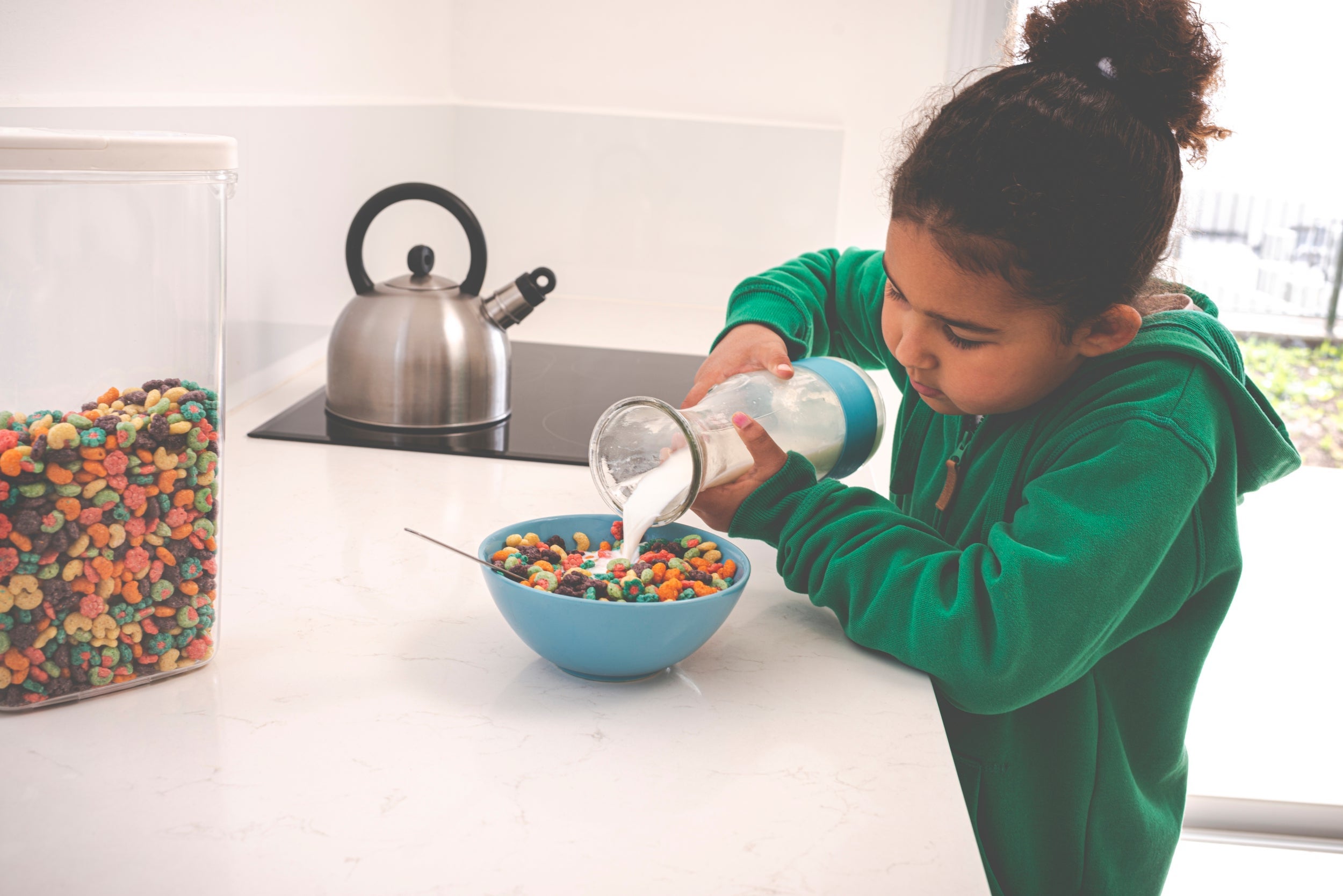'We really shouldn’t be too hard on ourselves': Ideas to entertain your kids this summer
With the kids having already been at home since March and the summer holiday looming, you may be wondering how you can keep your kids entertained, writes Alexis Soloski. So, here are some ideas

A funny thing about summer: It is long. It is also hot. This one comes in the middle of a global pandemic.
And even in a changed and changing world, I have reserved some mental energy for panicking about how my kids, husband and I will make it to September without everyone’s brains turning into Haribo gummies. Let me put it this way: On a recent rainy Saturday, we baked banana bread and played games. We made lunch together, built a cardboard lantern and learned about the constellations. It was exhausting. And they still put down two Disney movies. Three months into school closures, my children have watched every show. There are no shows left.
And yet, working from home with small children, an ordeal and a privilege, has been de rigueur since agrarianism got going. Parents managed it for thousands of years – without childcare, compulsory schooling or camps. What did children used to do all day? Short answer: They worked and they played, often with minimal adult supervision.
Unfortunately, as Steven Mintz, author of Huck’s Raft: A History of American Childhood, tells me, “The pandemic has exaggerated and intensified the worst features of children’s play today: adult intrusion; the decline of physical, outdoor and social play; and mediation by screens.” Ow.
So, how do we adults ameliorate that while staying safe, employed and reasonably sane? Here are some ideas.
Go old school. Very old
In an email, Mintz, a history professor at the University of Texas at Austin, points to Pieter Bruegel the Elder’s 1560 painting “Children’s Games”. A canvas to give social distancing enforcers nightmares, it shows 100 or so Flemish youths disporting themselves with hoops, stilts, bubbles, marbles, the occasional pig bladder and the wholesome fun of beating one another with a scourge. The Flemish parents are elsewhere, presumably answering emails or cracking open a brown ale.
The painting suggests that a lot of play is social, a difficulty in a pandemic. But it also insists that the desire for play is innate and that children will find ways to amuse themselves, especially if you can supply some rudimentary toys: kites, cards, blocks, dolls, balls, paper boats and paper aeroplanes, a garden hose if you have one, a half-filled tub. If they have a safe space to play outside (where the toys are even more analogue: sticks, rocks, dirt) and you can work from your phone while they do it, even better.

This may also be a good time to get away from the idea that play should be educational or Stem-enhancing. “All play is productive,” Mintz says. “They will learn something from whatever they do.”
Embrace boredom
Still, children may not want to play on their own or with a sibling, and you may have conference calls or Twitter threads that beckon. Which means they will claim boredom and, more than likely, they will whine about it. What should you do? Nothing.
So, yes, children can cook, and they can clean. If you can take a few extra minutes to gamify the chore – Mary Poppins’s ‘Spoonful of Sugar’ approach – they may even enjoy it
Feeling that we ought to keep kids happy and entertained is a comparatively modern mindset and speaks to certain resources and luxuries. Instead of trying to prevent boredom, maybe welcome it and see what children do. Tom Hodgkinson, the author of The Idle Parent, suggests ramping up slowly with an hour or so of “nothing time” every day – maybe less, if your children are very young. If they resist, he suggests doubling down on tedium – reading Paradise Lost or screening an Andrei Tarkovsky film – so that they end up running into another room and doing something else.
“You could try boring them with your games so they invent something better,” he advises. “Be a really boring mum.”
A DIY approach to culture
Normally around this time of year, my desktop and actual desk are littered with notes about outdoor theatres, concerts in the park and art installations that might hold a child’s attention for 10 whole minutes. Now my calendar looks like new-fallen snow.

If you can’t take your kids to cultural events, have your kids bring culture to you. “Be like Louisa May Alcott,” Mintz suggests. The March girls of Little Women don’t spend a ton of time lobbying for more My Little Pony: Friendship Is Magic episodes. Instead, they make up fantasy plays, write newspapers, craft costumes, stage their own circus and act out stories from Dickens’s The Pickwick Papers. (The Pickwick Papers are not exciting! And still, they make do.) Their efforts may be painful, but the 20 minutes your children spend preparing a deeply revisionist Frozen 2 is 20 minutes you can spend doing something else.
Two words: Free labour
Housework can also become a form of play and, depending on how well or poorly your children do it, may be some help. In the 19th century, Hodgkinson says, “children were seen as not necessarily a burden on the household but a welcome labour force.” Employ them.
“The thing to remember is that kids want to help, so try to get them in the habit of doing some of those things,” Lenore Skenazy, the president of Let Grow, a nonprofit promoting childhood independence, says. “A three-year-old separating laundry is quite possible and also quite fun. Six-year-olds can be making breakfast.” So, yes, children can cook, and they can clean. If you can take a few extra minutes to gamify the chore – Mary Poppins’s “Spoonful of Sugar” approach – they may even enjoy it.

Muddle through
A pandemic isn’t forever. Probably. So if it’s easier, leave historical practice aside, give guilt the vacation that you can’t take, and get through it. “Don’t think that there’s something wrong with you or that you haven’t been the perfect camp counsellor and made it a fun and exciting and rewarding summer for everyone,” Skenazy says. “I mean, just give yourself a break.”
If that break involves a lot of screens, remember that new entertainment forms and technologies – from the written word on – have always attracted suspicion that they will pulp or corrupt young minds. And most of us have turned out OK, no matter how many Smurfs episodes we may have once absorbed. Video games provide an opportunity to socialise; a streamed musical is still a musical; a virtual tour of a gallery or museum isn’t the same as wandering the halls yourself, but take what you can get.
In general, find out what your children like to do and encourage them to do it. Or go with the obverse: When you have time available, make them do stuff that you like. In my case, that means playing board games and watching toy theatre videos on YouTube, plus the occasional Hayao Miyazaki movie. Or the more than occasional one.
“Just let them watch a lot of films,” Hodgkinson says. “It’s temporary; it’s not forever. We really shouldn’t be too hard on ourselves.”
© The New York Times
Join our commenting forum
Join thought-provoking conversations, follow other Independent readers and see their replies
Comments
Bookmark popover
Removed from bookmarks